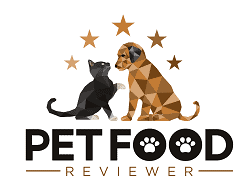What Is Fructooligosaccharides?
Fructooligosaccharides, also known as FOS, is non-digestible sugar that is found naturally within a variety of fruits, vegetables, and cereals.
Some of the best-known examples of natural sources of Fructooligosaccharides include Garlic, Onions, Leeks, Asparagus, and Bananas.
Fructooligosaccharides has become popular in many foods for human consumption as an alternative low-calorie sweetener.
Many prefer to use Fructooligosaccharides in certain products like drinks as the other common sweeteners have questions around their effects, including links to weight gain and diabetes.
However, while there are many natural sources of Fructooligosaccharides, the Fructooligosaccharides that is added to processed foods is unlikely to come from these sources and instead is usually produced by partial hydrolysis of Chicory or Sucrose.
Pet owners who are doing their due diligence by researching their pet’s food and ingredient list may have noticed its presence in their pet’s food.
Why would pets need an artificial sweetener in their diet, and is Fructooligosaccharides an appropriate pet food ingredient?
Why Is Fructooligosaccharides In Pet Food?
The primary reason that Fructooligosaccharides is added to pet food recipes is as a food source for beneficial bacteria found within a pet’s digestive system.
These bacteria ferment the Fructooligosaccharides in order to absorb its nutrition, and having a food source such as this present allows many of these bacteria to become more abundant in a pet’s gut.
There is a significant amount of research showing the importance of bacteria in the gut of humans and animals and how it can help defend against harmful bacteria.
Moreover, there are also claims that Fructooligosaccharides can improve the absorption of some beneficial minerals, including Calcium and Iron.
While there may be more research required to substantiate this claim, it could be beneficial for some pets who struggle to take on sufficient levels of some minerals or whose food contains a lesser portion.
Can Fructooligosaccharides Cause Digestive Issues In Pets?
While our research was inconclusive, there are some claims that Fructooligosaccharides in pet food recipes can cause some adverse effects, especially on digestion.
Some pet owners have claimed that once they switched to food with Fructooligosaccharides that their pets experienced symptoms like Diarrhea and Gas.
These claims are very similar to those made by humans, many of which also claims it has given them digestive issues.
While Fructooligosaccharides could cause these symptoms in pets, it would likely only do so if there was a very large portion consumed, leading to the explosive growth of the beneficial bacteria.
Most sources of Fructooligosaccharides for pets do not contain a large portion, and in fact, many contain a tiny portion.
Pet Food Brands That Use Fructooligosaccharides
Fructooligosaccharides is still a relatively minor ingredient in the pet food world and is not found in the recipes of most dog or cat food. However, there are some familiar faces that use it either occasionally or regularly.
Examples of well-known pet food brands from the United States that use Fructooligosaccharides in their recipes include Iams, Royal Canin, Hill’s Science Diet, American Journey, and Farmina.
Based on our research, Royal Canin is by far the largest user of Fructooligosaccharides in their recipes, where it is present over 100 times.
You can see a prime example of this below in the ingredient list of Royal Canin’s Indoor Adult dry cat food recipe.
As you can see, the portion size of Fructooligosaccharides present in this Royal Canin recipe is very small, and it sits alongside various added vitamins and minerals like Potassium Chloride and Choline Chloride.
Given this portion size, some of the concerns we discussed above around Fructooligosaccharides causing adverse digestive reactions is unlikely.
However, if you strongly believe that Fructooligosaccharides could be affecting the digestion of your pet, you may want to avoid it.
If so, we’d recommend avoiding brands, like Royal Canin, that make extensive use of the ingredient and select others that don’t add it to their recipes.





James I am just learning about these fructoologosacchirides for my diet so I can understand the benefits of it for the gut flora but it is not having a good effect on my cats diet. She does have gut problems, or she didn, hence the change to Royal Canin Digestive and Vets Kitchen snacks, but since changing the vet has mentioned a build up of plaque and some mild gingivitis. Tilly is 13 and to date she has never had such problems before. When discussing these ingredients is it not also important to discuss the impact on their teeth? Are there any U`k brands of cat food that are good for gut and teeth by any chance? I’d love to learn more. At least we humans have toothbrushes – my cat while having been abused in her early life, now in my care she trusts me after 6 years of me looking after her, but I don’t think she would let me clean her teeth and I don’t want to pay for a vet to give her a general anaesthetic to do so…any natural options for plaque removal? Thank you